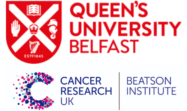Team
Utilising molecular and histological “big data” in the era of personalised medicine
If like us you are interested in developing and applying a new approach to advance our understanding of colorectal cancer (CRC) biology, through identification of signalling pathways that can be used as tractable cancer biomarkers, join us because we have the same dreams! We are particularly interested in delineating the molecular signalling and mechanisms underpinning the aggressive phenotypes in “born-to-be-bad” CRC tumours, to eventually identify novel drug targets and provide new treatment strategies.
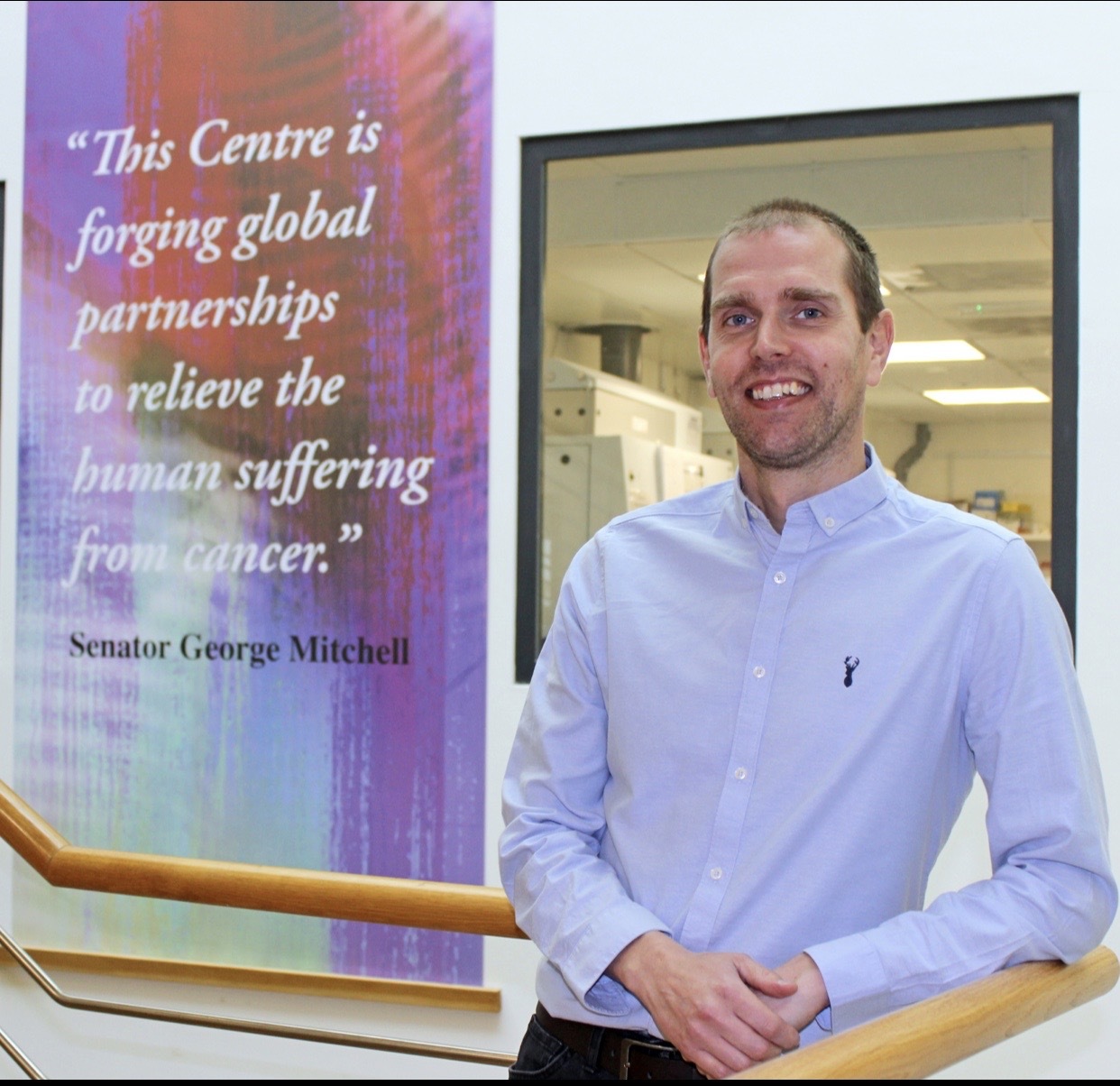
Group leader
Dr. Philip Dunne
Dr Dunne is currently a joint appointment as a Reader in Molecular Pathology within the Patrick G. Johnston Centre for Cancer Research (PGJCCR), Queen’s University Belfast and a Group Leader at the CRUK Beatson Institute in Glasgow.The Dunne lab applies a translational research programme, which focusses on the identification, mechanistic interrogation and therapeutic targeting of the biology (particularly tumour-immune-stromal interactions) underpinning disease relapse in early-stage colorectal cancer.Alongside his role as Deputy Chair of the NCRI Colorectal Group, Dr Dunne’s research group have developed a number of novel resources to align biomarkers to patient data and the most appropriate model(s), which may help in improving the translation of mechanistic science into clinical trials.
p.dunne@qub.ac.uk
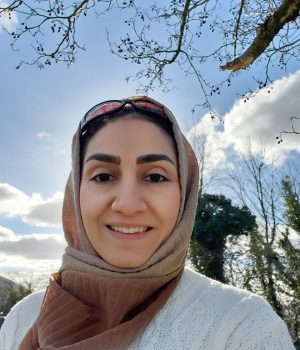
Dr. Raheleh Amirkhah
Postdoc Research fellow
Raheleh did her B.Sc and M.Sc in biology. She received her PhD in Cell & Molecular Biology from University of Tehran, Iran. The main focus of her PhD was on decoding the regulatory role of miRNAs in CRC using machine learning approaches. Currently, she is a joint postdoctoral researcher between PGJCCR, QUB, Belfast and Cancer Research UK Beatson Institute, Glasgow. Her project is disease positioning of colorectal cancer models using parallel transcriptional and histological alignment of tumours from genetically engineered mouse models (GEMMs) to equivalent human data, which is essential to promote stratified preclinical/clinical trials.
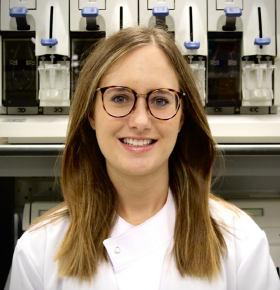
Dr. Natalie Fisher
Postdoc research fellow
Natalie gained a BSc in Biomedical Science from Queen’s University Belfast, and has recently submitted a PhD thesis exploring how a combination of digital pathology and molecular biology can be utilised to stratify colorectal cancer patients. The project was awarded the Musgrave Research Studentship. Natalie is currently a postdoctoral researcher within the group, exploring the aggressive phenotype of tumour budding within colorectal cancer.
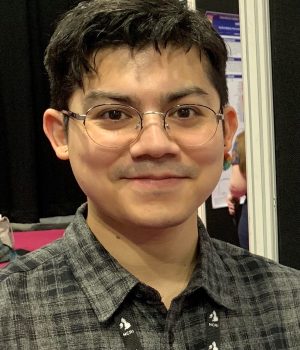
Dr. Sudhir Malla
POSTDOC RESEARCH FELLOW
Sudhir received his B.Sc. in Biological Sciences from the University of Essex. He went on to pursue for M.Sc. in Immunology at King’s College London. Following the completion of M.Sc., he studied at the Queen’s University Belfast for M.Res. Translational Medicine where he joined the lab. At present, his research applies computational tools on large gene expression datasets from colorectal cancer patients to answer key questions on tumour heterogeneity and elucidate molecular and biological understanding on cancer progression to develop patient stratification ways with potential therapeutic benefits.
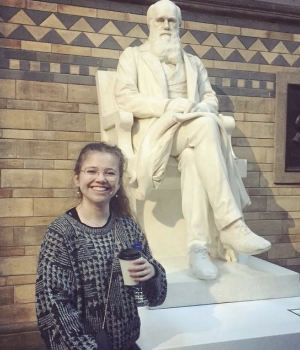
Shania Marie Corry
Phd student
Shania Marie Corry received her B.Sc. in Biomedical Science. Her project is the molecular evolution of early stage colorectal cancer. She is currently working on subtypes from a classifier the group have developed which sub-stratifies KRAS mutant colorectal cancer. The characterisation of these new subtypes is carried out using R programming.
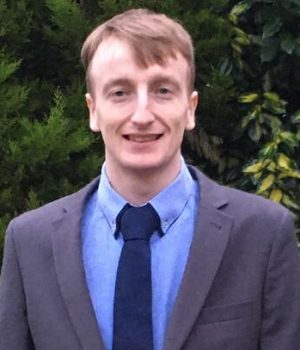
Ryan Byrne
PHD student
Ryan earned his MB BCh BAO in Medicine at Queen’s University Belfast. He later completed a MSc in Bioinformatics and Computational Genomics also at Queen’s University Belfast. His project uses computational tools to investigate the biologies associated with high-risk T1 colorectal cancer.
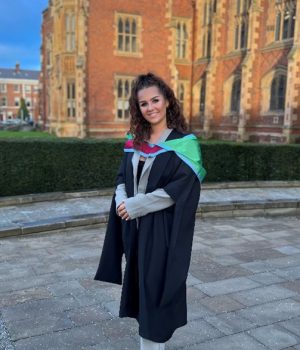
Courtney Bull
PhD student
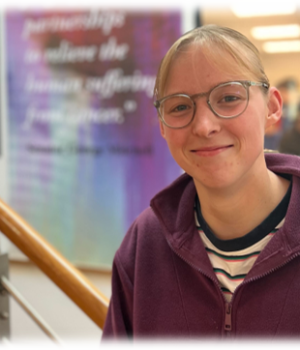
Emily Hoey
phd student
Emily’s work aims to understand the transcriptional regulators and wider networks driving the mesenchymal and amoeboid states in tumour cell migration. This better understanding will be used to guide drug repurposing studies and identify novel drug targets for anti-metastasis therapies.
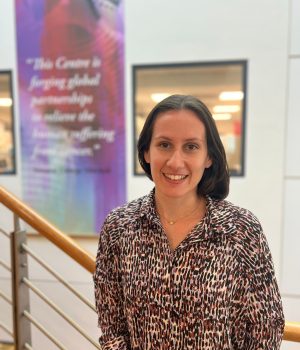
Jessica Edwards
Research Assistant
Jessica earned her B.Sc. (Hons.) in Biology from the University of Malta, followed by a M.Sc. in Molecular Biology and Biotechnology and later a M.Sc. in Bioinformatics and Computational Genomics both from Queen’s University Belfast. Jessica is investigating the similarities between human colorectal cancer tumours and colorectal cancer mouse models. The goal is to gain a deeper understanding of mouse models and their application in clinical trials and research, with the aim of improving their stratification with human colorectal cancer tumours.
Former team members:
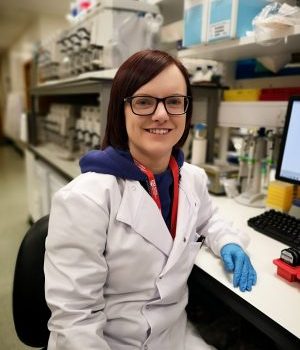
Dr. Keara Redmond
Research assistant
Keara earned her BSc (Hons) in Biomedical Science from Queen’s University Belfast in 2005, and earned her PhD in breast cancer research from Queen’s University Belfast in 2009. She then worked as a Research Fellow for 5 years, focusing on drug resistance in colorectal cancer, carrying out a wide range of molecular biology techniques. Her current role is as a Research Assistant, specialising in transcriptional profiling using RNA extracted from FFPE patient samples.
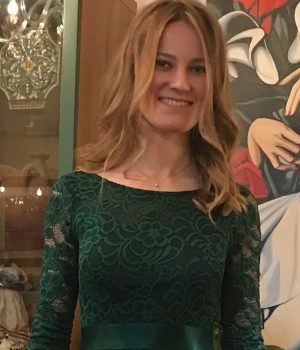
Dr. Svetlana Sakhnevych
Postdoc Research fellow
After completing Pharmaceutical Chemistry and Technology from the University of Naples Federico II (Italy), Svetlana did her PhD in Cancer Biology at the University of Kent (UK). She then worked as a Postdoc at Babraham Institute (UK) for ~2 years investigating the role of RNA-binding proteins in early B cell development. Her current project at PGCCR in Queen’s University Belfast is focused on the biological and phenotypic characterisation of the double stranded RNA response in CRC, that has been recently shown to decrease metastasis and increase survival rates in mice, and has been proposed as a novel therapeutic option to reduce relapse rates in patients with the worst CRC prognosis by Dr Dunne’s group.
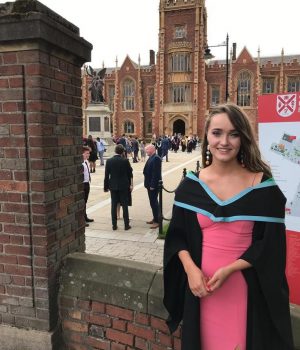
Emily Rogan
Phd student
Emily earned her B.Sc in Biomedical Science at Queen’s University Belfast in 2019 where she then completed a M.Sc in Bioinformatics and Computational Genomics in 2020. Emily’s project was funded by Bowel Research UK and is titled “Identifying molecular determinants of response to oxaliplatin in metastatic bowel cancer”. She is currently investigating the impact of a mutation on TP53 activity in metastatic colorectal cancer, and the effect this has on response to Oxaliplatin, a platinum-based chemotherapy.
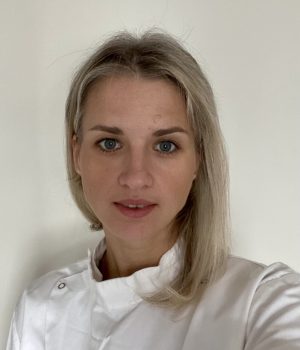
Dr. Nicoleta Sinevici
Postdoc research fellow
Nicoleta has received a MSc in Molecular Medicine from Queen’s University Belfast, followed by a PhD in cancer biology from Trinity College Dublin. She then worked as a postdoctoral fellow in the area of precision medicine in Massachusetts General Hospital and Harvard Medical School. Nicoleta has recently joined Dr Dunne’s lab and is currently investigating mechanisms related to resistance in rectal cancer.
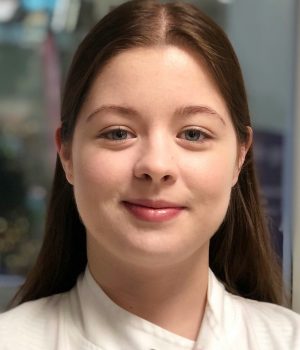
Dr. Amy McCorry
Postdoc in Edinburgh, UK
Amy earned her BSc (Hons) in Biomedical Science from Queen’s University Belfast. Her PhD focuses on the tumour microenvironment and how it can affect prognosis in colon cancer patients.
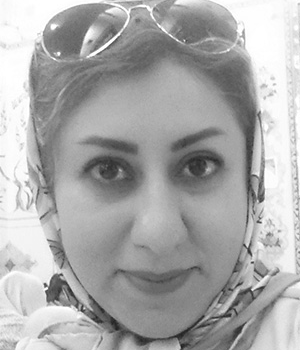
Dr. Baharak Ahmaderaghi
Lecturer in computer science
Baharak received the B.Sc Degree from Azad University, Arak, Iran in 2005, the M.Sc degree from Eastern Mediterranean University, Famagusta, Turkey, in 2009, and the Ph.D. degree from Queen’s University Belfast, in 2015, all in computer science. Her position as computer scientist with in Cancer Research UK International Accelerator program is to established integrative analytical environment to update analysis modules and embed biological data, allowing non-computation biology users the ability to query information related to Colorectal cancer.
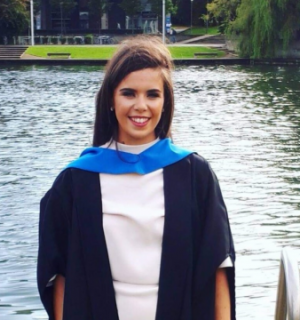
Dr. Aoife Mc Cooey
pOSTDOC IN ALMAC
Aoife earned her B.Sc in Cell and Molecular Biology at University College Dublin in 2017 where she was awarded a scholarship to work as a research assistant at the National Science and Technology Development Agency (NSTDA) in Bangkok, Thailand. Aoife is a second year Ph.D. student in Queen’s University Belfast in the Centre for Cancer Research and Cell Biology. Aoife is exploring the role of mTOR and Parkinson’s signalling in the relapse of very early stage colorectal cancer.
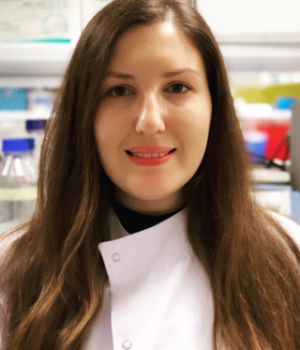
Dr. Yasemin Adali
Postdoc in turkey
Yasemin earned her B.Sc in Biology at the University of Pamukkale/Turkey. Followed by first M.Sc in Zoology from Adnan Menderes University she earned her second M.Sc in Histology and Embryology from Ege University in Turkey. Yasemin is a Ph.D. student in Queen’s University Belfast in Centre for Public Health and sponsored by Directorate General of Higher Foreign Education, the Ministry of National Education in Turkey. Yasemin is exploring how lifestyle factors and medications associated with colon cancer survival stratified by CRIS classification. Her research is based on molecular cancer epidemiology field.
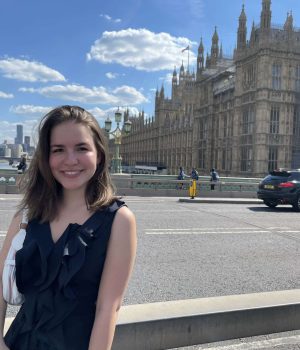
Rafaella T Vincenti
Master student
